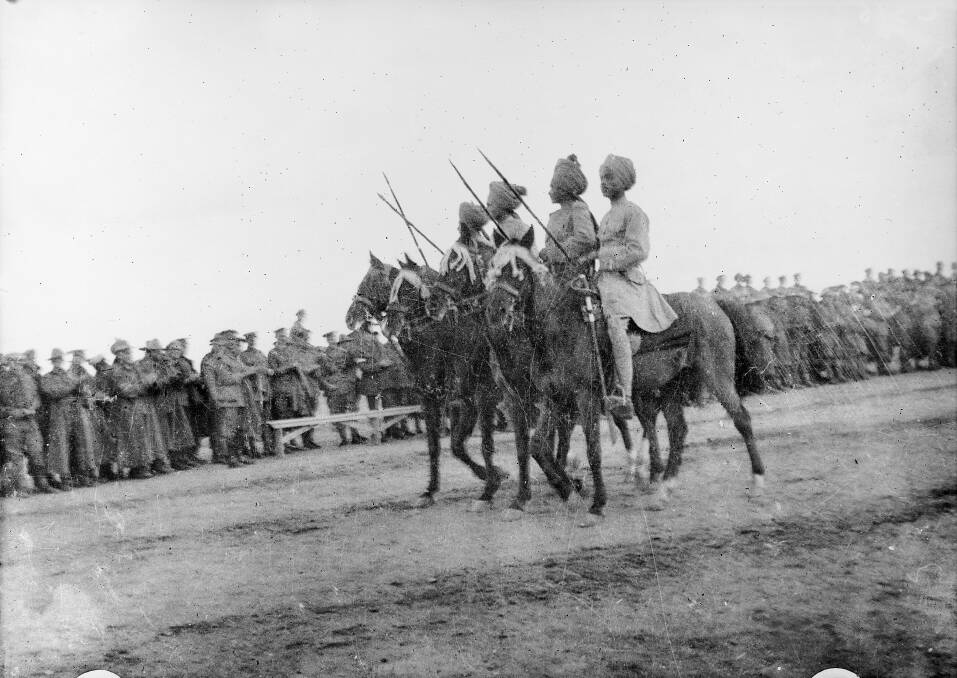A day to remember and reflect on the cost of war for us allAdvertising Feature

Everyone knows Anzac Day falls on April 25 each year - it is, after all, a national public holiday. But what many may not know is how commemorations have evolved over the years and how the day has fallen in and out of favour. Australian War Memorial senior historian Craig Tibbitts, who has been with the AWM for 24 years, explained the history and origins of the day.
"It's to commemorate the anniversary of the Australian and New Zealand Army Corps landing on the Gallipoli Peninsula on April 25, 1915, for the AIF troops, their first campaign of World War I," he said. "It was extra significant for Australia because by now we were a Federation [1901], a single nation fighting alongside our New Zealand brethren."
As we know, the campaign was filled with sorrow due to its failure and heavy casualties throughout its eight-month duration. "Good people were lost," Mr Tibbitts said. "And it's really to mark that event and those lost during that campaign."
Even as early as 1915, attempts were made to create an Anzac Day, but there was a lot of confusion surrounding it, Mr Tibbitts said. "We didn't have Australia Day back then as such, we didn't have a national day, and what people tried to create was mixed in and merged with Labor Day and Eight Hour Day.
"In some events, there was confused messaging about various pageantry parades and marches, and some even included army recruiting drives as well," he said. There was a mixture of sentiments, from nationalist patriotism to fundraising for the wounded.
In 1916, however, Chaplain David Garland, an Anglican clergyman and a military chaplain in Queensland, pioneered what would become the basis of the Anzac Day we are familiar with today. The troops were no longer on Gallipoli, having moved on to the Western Front.
Chaplain Garland had firm ideas that Anzac Day should be commemorated throughout Australia uniformly, and he formed a committee to divert from the chest-thumping of former pageantry and fundraising-based events. He felt it should be seen as more of a sombre religious event, and on April 25, 1916, the day was marked in Australia, as well as in Egypt and Britain by serving troops.
About 2000 Australian and New Zealand servicemen marched in London to a service held in Westminster Abbey and attended by the King and Queen. In Egypt, the event adopted a mix of solemnity and light-heartedness, with a short service followed by the rest of the day spent in sports and entertainment.
"There have always been arguments about what it should and shouldn't be, about the right mix of solemn commemoration and leisurely activities," Mr Tibbitts said. "And how religious it should be and whether shops should be opened or closed. But compromises were worked out, and you end up with a mix of solemn functions in the morning, like a dawn service, reading of the ode, veterans marches and addresses, which then give over in the afternoon to veterans reunions where they let their hair down a bit and play things like two-up."
By 1919, the importance of the day was universally recognised, and in 1927, the day became a public holiday. "Anzac Day's popularity has gone up and down over the decades," Mr Tibbitts said. "There was a lot of anti-war sentiment in the 1960s, '70s, and even into the '80s, but then by the 1990s and to the present day, there's been a resurgence in interest and popularity.
"That really culminated in 2015, the centenary of the landing, when there were huge crowds and public support."
While there are no longer any living original Anzacs, the day has expanded its scope and become an occasion to acknowledge veterans from all wars.
It is difficult to predict how the day might change and evolve into the future, but Mr Tibbitts said the important aspect was to remember. "As we know, war is a terrible thing, the loss of life and destruction, and even for those who survive," he said. "Wars are going on now, and we must always remember the cost of war. I hope we will never see in Australia the scale of loss we saw over two world wars [100,000 lives].
"But the world is an increasingly dangerous place, and sometimes it looks like we are heading down the path of another world war. We want to remember those who paid the ultimate price. It's important for all Australians to appreciate and understand, but no one should be dictated to or told how they should think about it. There are always going to be differing views, but you need to make up your own mind about how it is important to you."


